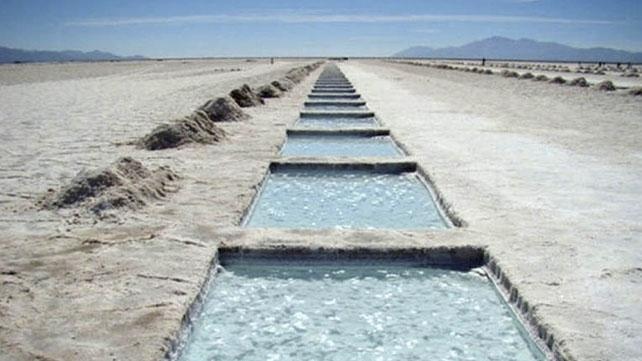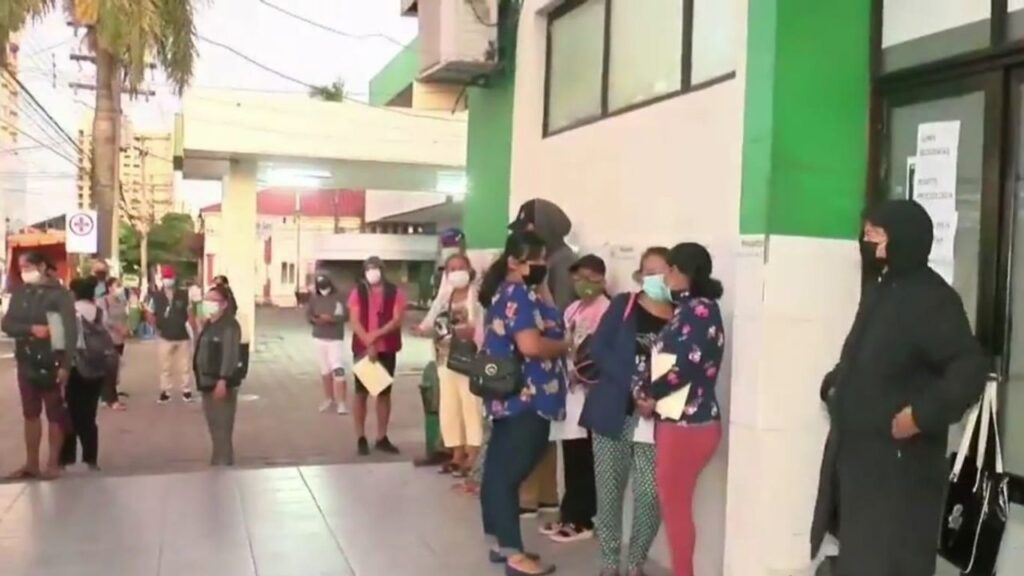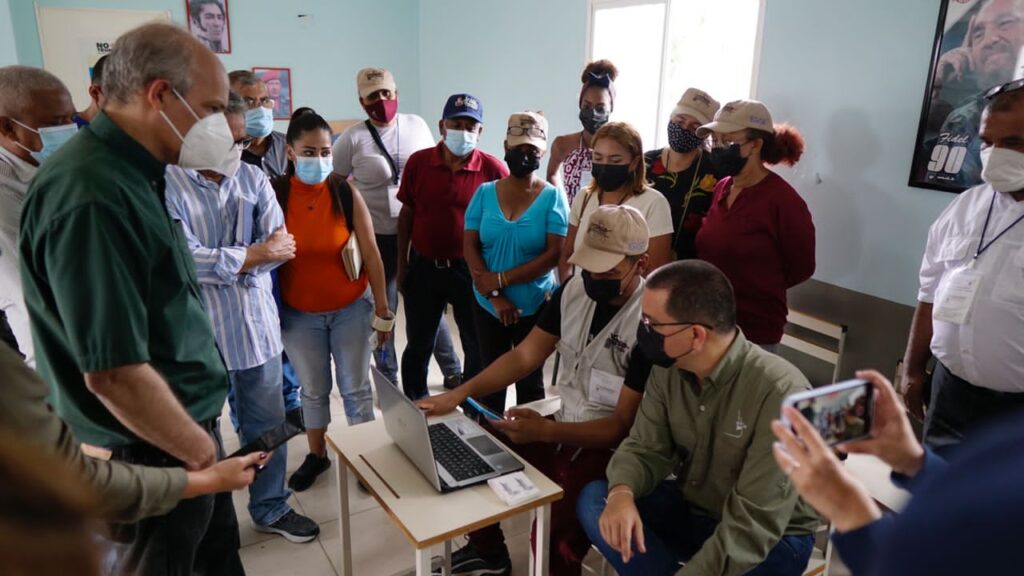Lithium represents a fundamental strategic resource when thinking about the necessary energy replacement on a global scale to stop using polluting fuels and respond to the ecological-environmental crisis.
Argentina ranks fourth in lithium production worldwide, after China, Australia and Chile. Argentina, Chile and Bolivia make up the lithium triangle, which contains 65% of global reserves of the metal.
“The extraction of lithium in the country continues under the inconvenient mining law that does not value it as a strategic resource. Looking to the future, are we going to maintain a purely extractivist model of natural resources or can we start a true path of mining, industrial and technological development?” asks Luciano Galende in one of the recent episodes of SIC Textual Journalism, a program that he hosts with Flor Alcaraz on Public Television.
To delve into some of the aspects that flourish within this question, from a perspective that is both specialized and committed to environmental problems, I spoke with the economist Ana Julia Aneisemember of Youth for Climate and master’s degree in Economics and Climate Change Law (FLACSO).
-When we talk about lithium, we talk about energy transition. What do they mean, from Youth for Climate, when they talk about energy transition? What scope does this concept have for you?
-For us, the energy transition is the answer to a diagnosis. The excessive emission of greenhouse gases into the atmosphere and the degradation of ecosystems are leading to a collapse, the situation is very close to one of no return. This requires joint, massive and coordinated action on a global scale. This action is much more than a mere technological transformation. It necessarily incorporates other dimensions. On the one hand, the current levels of consumption are very difficult to replicate in a scenario of renewable sources. In addition, the way they are produced requires a series of minerals that are a scarce resource and whose extraction implies an advance over other ecosystems. It is a great complex reality, with many fronts. But the common denominator is that we have to generate a civilizational transformation that has the sustainability of our species as a priority. And in that sense, there are other objectives, which are the ones that currently govern the socioeconomic system -the first of them, the pursuit of monetary gain-, which have to be put in second place in order to move forward.
There is also the issue of the inequities that exist at the global level. North-South inequities and inequities of the highest and lowest income deciles. In this need for comprehensive transformation, we are not in the same situation in Argentina with almost 40% poverty as in the United States or a European country. In this sense, we consider that a fundamental condition for the energy transition to be fair (that is, that this change is not made to the detriment of people’s quality of life) is international financing. This is part of the commitment that the countries agreed to in the framework of the Paris Agreement in 2015, and it is not being fulfilled. Due to the historical responsibility that these countries have in climate change, but above all because of the financial capacity they have, taking charge of economically promoting the transition is a fundamental condition for the transformation to take place in the best possible way.
So, It is an issue that has a core in the concentration of wealth and that, like everything that involves the environment, is a reflection of our society, which has many other problems.. The environmental is always a symptom of other problems that society has.

-Why is lithium the subject of debates in Argentina now?
-Because it is a fundamental element for the transition towards electromobility. Electric cars use lithium ion batteries, and it is a metal that is concentrated in not many countries. There is an element that is highly demanded and that Argentina has in abundance.
Now, this involves a number of complexities. We have lithium in salt flats, just like Chile and Bolivia. Lithium mining in salt flats consumes a lot of water in wetland ecosystems, which are fragile. In addition, they are extractive enterprises that are located in places where communities of native peoples live. Ok, the global energy transition is demanding large amounts of metals and elements. Ok, in Argentina we have a lot of that. But this exploitation of this resource has an associated environmental and social impact.. So, at one point, we have to ask ourselves where is that transition going? And here comes the question you asked me before about how we understand the energy transition. The transition for many is that in the United States, instead of combustion cars they have electric cars. So, the family that previously had three cars, continues with its current consumption scheme, continues without questioning the accumulation scheme and, in short, we continue the same but with fewer emissions. In the short term, it is a very strong drain of resources in countries of the global south to satisfy consumption in the global north. Inequalities are perpetuated. This is a bit of what is mixed in the discussion of lithium in Argentina.
-What are the central points when thinking about this issue from a perspective that breaks down the dichotomy development vs. environmentalism? How can we think from a sovereign point of view about the energy transition process?
-In my personal opinion, I think that dismantling this dichotomy (beyond the tensions that exist and have to be recognized), has to do with mining lithium that tries to use technologies in the extraction stage that are less aggressive in terms of environmental, consuming less water. These technologies are under development and there must be a strong impulse and support for the research centers that are working in litiferous provinces. That exists, and we need to push it forward and show that we really care about doing less aggressive mining of the element..
On the other hand, it is necessary to put in check the role that we occupy at an international level by not generating too much added value from the raw material. It sounds very good to say it, it is very difficult to implement it: building the capacities, obtaining the financing to have the technology that makes this industrialization process possible, having a macroeconomy that also facilitates it, are a lot of conditions. But in the ideal, we would have to be closer to exporting electric cars or lithium ion batteries than lithium carbonate, which is what we mostly export now.
It is also essential to respect the processes that are established in the Constitution in terms of environmental social safeguards. There must be free, prior informed consultation with the native peoples regarding whether or not they want their territories to be extracted. For cases in which the social license is granted, environmental control regimes that are really competent, that allow studies that go beyond the environmental impact study carried out by each company. All of this should be leveraged by national universities, by the provincial science and technology system, in controls that really have the capacity to be able to generate a real guarantee that, within extractive activity, the best standards are being worked on. possible. The summary is that we must respect the social and environmental at the local level.
In a dimension, if you will, more systemic, we should ask ourselves what are the patterns of consumption to which this demand responds and how we are going to respond or not from Argentina or from Latin America to that. Always understanding that we are inserted in a world that demands something and we are in a situation of great weakness and economic fragility. It is difficult to put that in check from Argentina because it implies a tension with the objectives in social terms.
-Of the countries that make up the lithium triangle, ours is the only one that has not declared it a strategic resource. What implications does this have?
-Argentina does not have a specific regime for lithium, as you well say, it is tied to the mining regime in general terms. We are a federal country in which the provinces have the original domain of natural resources. One could say that lithium must be subjected to a special regime, but that could come into tension with the interests of the provinces. It supposes a great management in terms of federalism. It seems to me that we have to be concerned to see how having this resource enables a better quality of life for the people of Catamarca, Jujuy and Salta.
-How do you see the perspective of a national alliance in relation to the issue of lithium?
-I think that today we are far away, but that on the horizon it would be, clearly, the ideal thing. By always allying and establishing regional ties, a better position can be established to negotiate certain conditions with respect to the rest of the world.


















